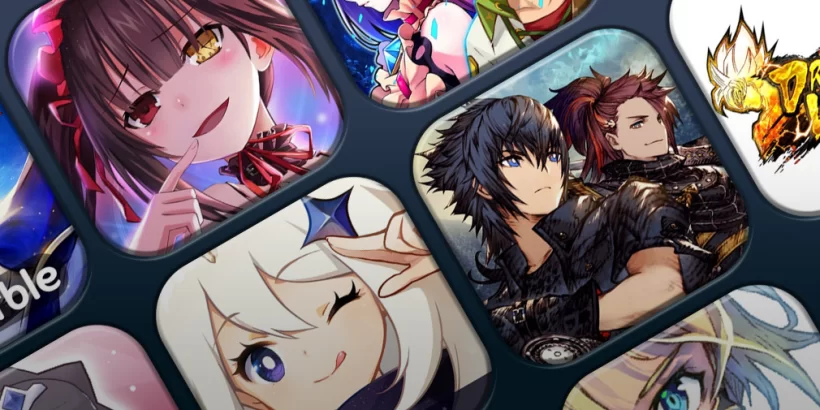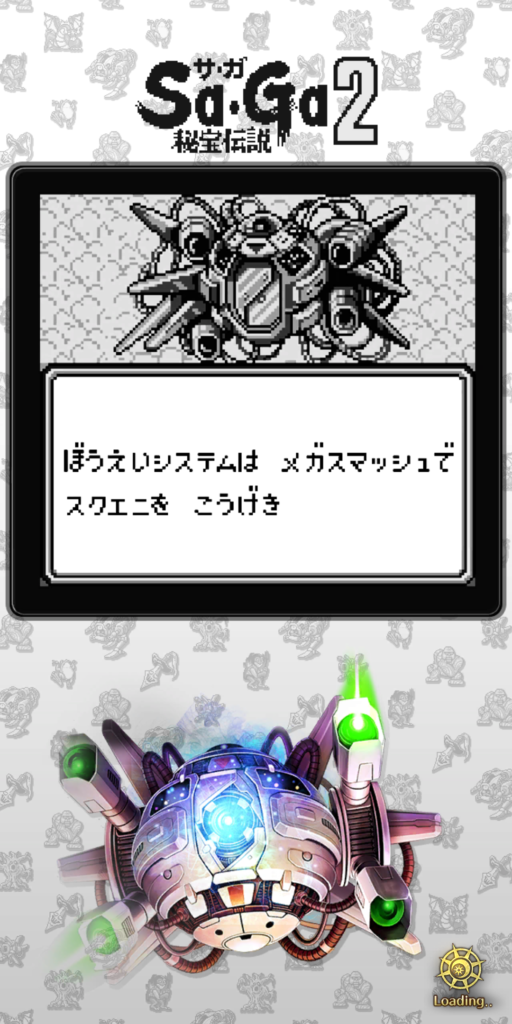I’ve played Gacha games – only four or five total – off and on for years. I’ve rarely spent money on them, but I know they are – by design – predatory. I find them relaxing and they offer just the right level of engagement for 10-30 minutes a day – sometimes more, sometimes less.

On some level, I know it’s a bad idea to play them. Having played for years, I know the feeling of spending all your “free currency” on summons and getting nothing of value (where value can mean either a useful unit or a favorite unit). It was tempting to spend real money – maybe $5 or $10 – to “support the game” and try for one last chance to get something good,but I managed to resist the temptation. The games remained both a fun diversion and a distant threat.
I’ve stuck to games that are obviously pandering to nostalgia – primarily Final Fantasy Brave Exvius and Romancing SaGa Re;UniverSe (ugh), although I dabbled in the now-defunct Dragon Quest of the Stars for a bit.
Final Fantasy Brave Exvius is particularly predatory – it waves nostalgia around like a weapon (now on its 5th or 6th iteration of Cloud), has especially poor rates to summon a desired character, and makes low-effort references to older games (at best, a two-minute exploration stage consisting of a single map, a couple of redone character designs, and three or four lines of dialogue referencing events of the game indirectly). I didn’t play for nostalgia, though, since I found the combat mechanics interesting and I was engaged in the community.

I ended up bouncing off of Brave Exvius, playing Kairosoft games for several months, relapsing into Brave Exvius for several months and then stopping altogether. While the developer, Alim, got better at creating new content, and the combat system continued to develop nuance, it got to the point where it was no longer a game that you could pick up and play for just a few minutes. New content was either incredibly simple or incredibly complex, and became a chore.
Re;UniverSe, on the other hand, I had less nostalgia for (having played only the FF Legend games and SaGa Frontier) but found the content to be more interesting and the free currency more generous. Despite both being Square Enix properties, Re;UniverSe is a velvet glove to Brave Exvius’ iron fist. Still a predator (or, presumably, it wouldn’t be in business), but a gentler, kinder one.
More recently, Re;UniverSe introduced an event focused on Final Fantasy Legend 2, and I’ve been swept up by nostalgia that is (largely) free and extensive. Original concept artwork is mixed with redone artwork, original music along with remixes. Loading screens in-game were changed to show events from the Game Boy release, although they’re obviously taken from the Japanese version. In this case, the wave of nostalgia is augmented because much of the original artwork is completely new to me, having only been exposed to the “Square US” versions – and with only a few of those, much of the game’s artwork had been left to the imagination, since it was a Game Boy game with many characters represented only by tiny sprites.

It’s hard for me to reconcile the fact that I’ve been enjoying a trip down memory lane in a predatory game. Part of me wants to say “gacha games are bad,” another wants to say “gacha games are good” – but I think in moderation, gacha games can at least be neutral. The way they are written and made makes them an easy vehicle to recycle old content, or add new dimensions to things we’ve previously enjoyed – that seems like it can be a good thing, just as much as it can be a bad thing.

I don’t think that, by merely playing a game, I am necessarily complicit when I read about people spending tens of thousands of dollars on pixels. But there’s nonetheless an occasional twinge of guilt as I know someone else likely spent money fueling an addiction to a game that will eventually be shut down.
Another part of me, a part I’ve mostly ignored, recognizes that online experiences, even ones like Re;UniverSe where multiplayer is deliberately superficial, are inherently transient. Is playing a GAAS game fundamentally a waste of time, or are all game experiences transient and equally valid (or invalid), and therefore any meaning derived from it must be personal? When I think about it that way, it seems like playing a nostalgia-infused, modern gacha game isn’t particularly worse than replaying, say, the original version of the game it echoes.


I think it all boils down to whether or not a given player finds the nostalgia bait appealing. Of course, the next question someone may ask themselves is “is it okay that I find it appealing? Or is it somehow harmful?” That’s not going to be easy for anyone to answer.
On a side note, my kids have been playing some games on Amazon Kids tablets (go ahead and judge me for this on multiple levels. I’ll wait …)
Anyway, there’s a bunch of gacha games on there made by Budge, with the twist being that they’re tweaked from the “regular” versions that are on iOS and Android.
Specifically, on Amazon kids, the cash shops in these games are locked away behind multiple layers. It can only be activated through the use of two different mobile devices, a QR code, and something else I can’t remember. Basically, for a child of a certain age, it’s impossible to access.
Because of this, the “Amazon Kids” version of the game is tweaked so that it’s playable without microtransactions. The one concrete example I know of is Pocket Ponies. Like many of these games, it has two currencies – coins and gems. On Amazon Kids, you earn both just by playing the game. Or to put it another way, “just playing the game” is not just one way to progress, but really the only way. And it works!
However, when we loaded the iOS version on an iPad (which of course has the cash shop enabled), we discovered that gems are almost impossible to obtain without spending money. And since gems unlock new ponies to play as, progression without paying up is almost impossible.
I only point this out because it is concrete evidence that these studios know how to make these games less predatory, because they’ve done it when forced to. Which makes it that much more despicable to see them go ahead with it anyway.